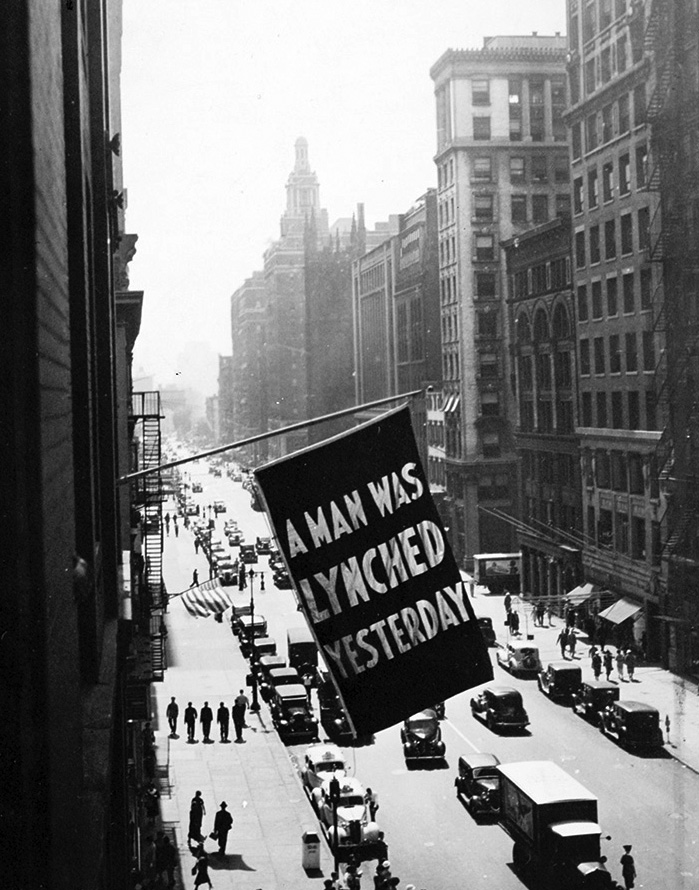The NAACP, the National Association for the Advancement of Colored People, was an organization created under the basis of civil rights. In 1909, it was formed to advance justice for African Americans and fight for equality. The group still exists today and continues to promote equality of rights and attempts to eliminate racial prejudice in this nation and beyond.
In February of 1909, the NAACP was founded in the United States. With a variety of predecessors such as the National Negro Committee, created for similar reasons as the NAACP, and the Niagara Movement, the NAACP become one of the most influential groups amongst them all. In 1908, the Springfield, Illinois race riot took place where two African American men were held in a Springfield jail for alleged crimes against white people in addition to a white mob burning down 40 home’s in Springfield, ransacking local businesses and murdering two African American’s. This sparked controversy and anger amongst the African American people and thus the NAACP was formed. They had had enough of the mistreatment, inequalities and prejudices towards them and they decided enough was enough. It was time to take a stance and make a change.

In getting this group up and running, founding members included white progressives such Mary White Ovington, Henry Moskowitz, William English Walling and Oswald Garrison Villard. Prominent African Americans involved included W.E.B. DuBois, Ida Wells-Barnett, Archibald Grimke and Mary Church Terrell. The goal of the NAACP was to establish equal rights and eliminate racial prejudice, also “advancing the interest of colored citizens” in terms of their voting, legal, educational and employment opportunities using whatever peaceful tactics necessary to accomplish this goal such as the use of legislation, lobbying and peaceful protests.
The group was responsible for supporting and enacting a variety of different pieces of legislation over the years, especially throughout the Civil Rights Movement. In 1910, a constitutional amendment was passed in Oklahoma which established the “grandfather clause”. This said those whose grandfathers had been eligible to vote in 1866 could register to vote without passing the literacy test, obviously favoring whites as African Americans did not yet have that right at this time. In 1915, the NAACP challenged the ruling in the Supreme Court in Guinn v. United States, ultimately winning their appeal. This deemed the grandfather clauses unconstitutional from that point forward.

In 1917, thousands of people flooded the streets of New York City and participated in a silent march led by the NAACP in protest against lynching and violence towards African Americans. This demonstration was one of the first of its kind in the United States. Anti-lynching became a central focus for the group through most of its early time. Though they were unable to get legislation passed against it, they made great efforts in the movements against the issue and increased awareness of it to the public. By 1919, the organization had almost 100,000 members and was more than well-known in our society all over the country.
The NAACP played a crucial role in the civil rights movement through the 50’s and 60’s. They did this through further use of legislation, protesting, rallies and more. We just learned about the case Brown v. Board of Education. The NAACP played a pivotal role in the 1954 case which ended up outlawing segregation in public schools. The NAACP head of Legal Defense and Educational Fund, Thurgood Marshall who was later Supreme Court Justice of the United States in 1967, argued before the Supreme Court that segregation in public education as well as rejection of the separate but equal doctrine was unconstitutional. He pushed this further through his position in the NAACP and later his position on the Supreme Court, always primarily emphasizing that segregation was inherently unequal.
In 1963, the NAACP helped organize the March on Washington, known to be one of the biggest civil rights rallies in U.S. history. The march became a catalyst of the 1964 Mississippi Freedom Summer to push for voting registration for African American Mississippi citizens. The NAACP became a voice for this movement as well, pushing for equal voting rights for these citizens. The group also successfully lobbied for the passage of landmark legislation including the Civil Rights Act of 1964, prohibiting discrimination based on race, color, religion, sex or ethnicity, and the Voting Rights Act of 1965, erasing racial discrimination in voting. Without the NAACP and its influential leaders, it's safe to say the success rate, or the success in general of the Civil Rights Movement may have been significantly affected. The progress and advancement towards equality for people of color made through the efforts of this group are exceptional.
Sources:
https://www.history.com/topics/civil-rights-movement/naacp#section_1
https://en.wikipedia.org/wiki/NAACP#Organization
No comments:
Post a Comment